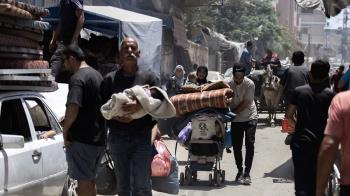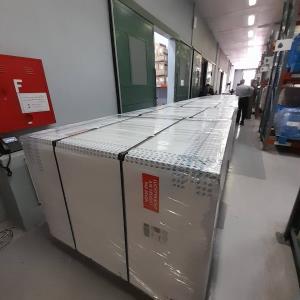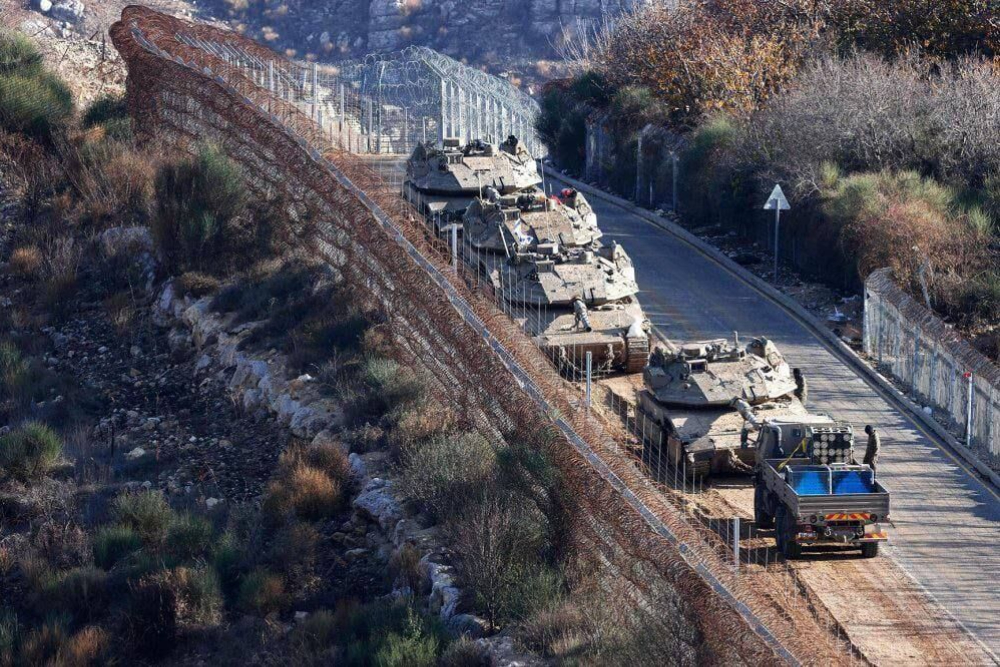Alwaght- While the Israeli crimes in Gaza have caused a global backlash and many countries have ostracized the Israeli regime from the world community, the interim Syrian government led by Ahmad al-Sharaa, better known for his nom de guerre Abu Mohammad al-Jolani, is moving in a different path and pushing to establish contact channels with Tel Aviv.
In this connection, Reuters citing Syrian, Western, and regional intelligence sources, reported that Israel and Syria have recently made direct contacts and held several security meetings in the border regions. The aim of the meetings, the report said, is to steer clear of tensions and clashes on the borders between Syria and the occupied territories.
Reuters reported that the meetings followed behind-the-scenes talks that have been ongoing through international mediators since the fall of Bashar al-Assad’s government in December. On the Syrian side, Ahmed al-Dallaty, a senior security official and governor of Quneitra, led the contacts.
Although Reuters was unable to identify the Israeli representatives, two sources with knowledge of the matter confirmed that the representatives were senior security officials. According to three independent sources, the direct talks took place mainly at border points and in some areas occupied by the Israeli regime.
The Syrian interim government, headed al-Jolani, has begun secret talks with Israeli officials at a time when Israel has carried out dozens of airstrikes on Syrian territory in the past six months and occupied some areas in violation of security agreements signed decades ago. According to reports, Israeli military forces have advanced to within 25 kilometers of the capital Damascus.
Despite these aggressive actions, the new Syrian leader and his interim government have maintained a significant silence and have not shown any official response to these aggressions. This silence comes despite the fact that the interim government had previously vowed to defend Syria’s sovereignty and territorial integrity. In recent weeks, under pressure from the Israeli regime, the leaders of Hayat Tahrir Al-Sham (HTS), the militant alliance that toppled al-Assad, expelled the leaders of Palestinian groups who had been living on Syrian soil for years, sending a message to Tel Aviv that a new chapter in relations between Syria and the regime was beginning.
On the other hand, these direct meetings took place immediately after US President Donald Trump met with al-Jolani a fortnight ago during his regional tour, who called for practical steps by Damascus to normalize relations with the Israeli regime. This development indicates a strategic shift in the policy of Damascus under HTS rule and an attempt to gain international legitimacy by aligning with American projects in West Asia region.
With this move, the al-Jolani regime seeks to break free from international isolation and introduce itself to the international community as a legitimate and negotiable actor. In addition, the new Syrian ruler is trying to persuade economic and military aid from the West by participating in the Trump's project to normalize Arab world's relations with the Israeli regime.
Countering the Axis of Resistance as key aim of Damascus and Tel Aviv
Indeed, at any meeting of leaders of Damascus and Tel Aviv, there are an array of political, security, and even economic gives and takes, since such meetings are impossible without covert or over agreements.
West Asia affairs expert Jaafar Ghanadbashi in an interview with Alwaght commented on the goals of al-Jolani and the Israelis behind holding direct talks in the current situation in the region, saying: "In the direct talks held with the Zionist regime, the al-Jolani’s government tried to assure its main supporters, who paved the way for it to come into power, above all else. None of the regional and Western supporters of the al-Jolani’s government are opposed to the Zionist regime’s negotiations, but even welcome the normalization of relations with this regime. Especially since the continuation of the confrontation of the resistance forces in the region and the elimination of rival forces in Syria requires cooperation of Israel and the al-Jolani’s government. Of course, the Zionist regime pursues occupation goals, such as dominating some of the common border areas or creating a corridor to access the Kurdistan Region, which is generally impossible to achieve without the al-Jolani government’s consent. Likewise, curbing the capabilities of Hezbollah in Lebanon, as a common goal of both sides, is among the issues that require the exchange of views and cooperation of the two parties."
Suggesting that in the critical regional situation, Israel should agree to some Syrian conditions, Ghanadbashi noted that "currently the Zionist regime is in a difficult situation that forces it to walk back from some of its positions, since this regime finds talks to al-Jolani’s government as a window to pass some of its challenges. Besides, normalization of relations with Syria wins support of regional and Western sides and allows it to better secure its strategic interests in Syria.
Commenting on the aspects and aims of mediation of some actors between Syria and the Israeli occupation, Ghanadbashi said that regional actors have plans on agenda for the transitioning Syria and for new arrangements in West Asia and they do not want to lose the chance provided to them by the rise to power of al-Jolani’s government or allow the resistance forces or aligned groups to tip the scales of power against their interests. So, their under-implementation plans majorly revolve around countering the resistance and anti-Israeli occupation forces.
All in all, although direct interactions between Damascus and Tel Aviv are labeled under "de-escalation" efforts, they are actually part of a broader geopolitical deal that can influence the composition of regional forces and even the future of power structure in Syria. Therefore, such negotiations are not simply tactical; rather, they are part of a strategic process to redefine relations between warring actors.



























